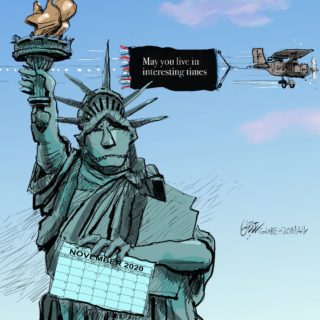Premiers agreed on Monday to accept a federal offer that will add $46-billion in new health care funding over 10 years even though it falls far short of what the provinces and territories say they need.
“This is not long-term, sustainable funding that will address the health care challenges that we have across our country,” Manitoba Premier Heather Stefanson said after an hour-long virtual meeting of the premiers and territorial leaders on Monday.
But the premiers say they weren’t going to leave money on the table.
“It took 2½ years to even be able to sit down and be at the table and have a discussion with the Prime Minister,” Ms. Stefanson, who is chair of the Council of the Federation, said in an interview. “We’re going to look at investing those dollars in our health care and so we will accept this, and move on from here.”
Ottawa is now negotiating bilateral agreements with each province and territory. The government is going to allow each premier to prioritize where their share of that funding will go as long as it falls within the priorities identified by Prime Minister Justin Trudeau: family health teams; health workers and surgery and diagnostic backlogs; mental health and substance use; and a modernized, digital health care system.
Health care systems across the country have not yet recovered from the pandemic strain. People are going without access to primary care and enduring long waiting times while hospitals are beset by surgery backlogs, staffing shortages and clogged emergency rooms.
The premiers had been asking for an immediate, annual top-up to the Canada Health Transfer of $28-billion, plus a minimum 5-per-cent annual increase. Their request would equal more than $300-billion in new spending over 10 years. At a meeting last week with Mr. Trudeau, the premiers were presented with an offer: In total, including previously committed funding hikes, Ottawa says it will now increase its health care spending by $196.1-billion over the next 10 years.
Mr. Trudeau signalled that the $46.2-billion in new health care funding over 10 years was his government’s first and final offer. The money is being divided up largely between a modest increase to the Canada Health Transfer (sent automatically to provinces and territories on a per-capita basis) and $25-billion for the bilateral agreements.
British Columbia Premier David Eby, who will be sitting down on Tuesday to negotiate a bilateral deal for his province, said the offer represents a reversal for Ottawa, after years of contributing an eroding share of the cost of health care. “It’s clear that every region of our country is struggling with increased strains on their health care system. While the specific pressures are different for each province, the need for support from our federal partner is urgent and acute,” he said.
Since announcing its health care funding plans last week, the federal government put on a full-court press to get premiers on board quickly and to put the separate bilateral funding deals in place. Federal Health Minister Jean-Yves Duclos and Intergovernmental Affairs Minister Dominic LeBlanc are travelling around the country to meet with provincial and territorial leaders.
Mr. Duclos and Mr. LeBlanc issued a joint statement on Monday welcoming the announcement from the premiers. They said their meetings with premiers and provincial and territorial health ministers have centred on how to improve the country’s 13 health care systems for both patients and staff. They also said the priority areas that the federal government highlighted for the bilateral funding deals, such as primary care, were “informed by what Canadians and health workers have told us are their priorities.”
“There is still much work ahead of us to finalize bilateral agreements with each province and territory, and over the coming weeks, that will be our focus,” the ministers said.
Nova Scotia Premier Tim Houston said Monday’s meeting with federal ministers in Halifax was productive and positive, and cash to improve health care in the province should start flowing immediately. “It is clear that we have shared priorities, and that the federal goals align with our Action for Health plan,” he said in a statement to The Globe. “We’re especially pleased that the federal government has recognized Nova Scotia’s aging population and has factored that into the agreement.”
Newfoundland and Labrador Premier Andrew Furey said he hopes to firm up a bilateral agreement quickly. “I look forward to finalizing these bilateral agreements with the federal government to move forward on our shared health care priorities with increased investment,” Mr. Furey said in a statement.
The premiers will still push for some amendments to the final deal.
Doug Ford’s office said the Ontario Premier has put forward specific recommendations about the long-term sustainability of Ottawa’s funding offer. “These recommendations toward sustainability and certainty would be data-driven, based on performance, and would always protect personal health information, as was always the intention of the provinces, territories and federal government,” the statement said. “Premier Ford will continue to work directly with his fellow premiers and the federal government to finalize the funding agreement.”
The recommendations will be contained in a letter from the premiers to the Prime Minister to be sent in the coming days.
JUSTINE HUNTER
The Globe and Mail, February 13, 2023

